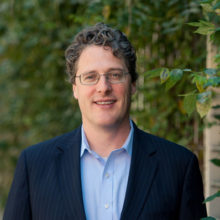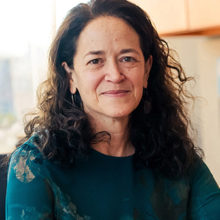Smith Family Foundation offers a fundraising challenge to advance research to stop ALS before it starts.
When Daniel Barvin learned he carries the C9orf72 gene expansion that causes Amyotrophic Lateral Sclerosis (ALS), he chose to learn as much as he could, because, he says, “knowledge is power.”
Although he admits it was a shock to learn his life might not last as long as he thought, “sharing my story and building this community has made my life so fulfilling and meaningful.”
Barvin watched his uncle, aunt and then his father succumb to the disease over a 20-year period before realizing they all carried an ALS gene.
ALS is a progressive, neurodegenerative disease with no cure. It attacks nerve cells in the brain and spinal cord, robbing individuals of their ability to move, speak and finally, to breathe. Treatments for ALS are limited, and there are no cures, but researchers around the world are studying the disease so they can slow progression, reverse damage, cure and ultimately prevent ALS. Only 10-20 percent of cases are hereditary or “familial,” like Barvin, while the causes of the remaining 80 percent of “sporadic” cases of ALS are unknown and challenging to predict.
“My father, aunt and uncle were blindsided by this disease,” says Barvin, 34. “I want to be the last generation ravaged by ALS.”
Uncovering Causes to Find Answers for Everyone with ALS
Barvin’s determination to learn more led him to the research program at the Sean M. Healey & AMG Center for ALS at Massachusetts General Hospital. He became an early participant in a study that has grown into PREVENT ALS, a bold effort to get ahead of this devastating disease and stop it before it starts.
PREVENT ALS looks at individuals with ALS-causative gene mutations who do not yet have symptoms using cutting-edge tools like digital monitoring and an evaluation of the gut microbiome that connects bacteria in the GI tract to brain health and has been linked to ALS. By following participants over time, a nationwide network of researchers, led by James D. Berry, MD, MPH, at Mass General, Timothy Miller, MD, at Washington University, Neil Shneider, MD, PhD, and Matt Harms, MD, at Columbia University, hope to identify the earliest symptoms and molecular changes caused by ALS so they can diagnosis the disease earlier and start treatments before many motor neurons are lost.

“At the cellular level, familial and sporadic ALS look surprisingly similar,” says Dr. Berry. So, studies evaluating the causes of familial ALS will not only benefit familial ALS, they will also help understand all ALS and act as the keys to treatments.
“We are confident that what we learn about the group of people with familial ALS will lead to answers for every patient with ALS,” he says.
Research into ALS is only one of several studies around neurodegenerative diseases underway at Mass General.
“Our collaborative research efforts in the Healey Center and across the neurosciences at Mass General are revealing similarities among neurodegenerative disorders,” says Merit Cudkowicz, MD MSc, Chief of Neurology and director of the Healey Center. “We are at an exciting and very promising time as we work to find therapies for ALS, Alzheimer’s disease, Parkinson’s and Huntington’s disease. We are so grateful for the support of patients, families and friends who help us move ever closer to our goal of curing ALS and all neurodegenerative diseases.”
Smith Family Foundation Personal Connection Inspires Gift
Key to the success of the study will be enrolling more individuals with ALS-causative genes. To support that work and the cost of the testing required, The Eddie and Jo Allison Smith Family Foundation has provided the Healey Center with a $1 million matching gift opportunity.
“We like to see other people come to the table,” says Sam Soliman, executive vice president of the Smith Family Foundation, “and we are happy to encourage more people to support this research.”

Although the Smith Family Foundation, based in North Carolina, has been around for nearly three decades, supporting a wide variety of community and medical charities, the work of the Healey Center hit home.
“Eddie’s only son Chris received great care from Dr. Merit and the team at Mass General when he was facing ALS,” says Soliman. “The care and compassion they showed him and the drive they exhibited to push forward efforts to find the cures really impressed us.”
Telling His Story to Encourage Participation
Barvin’s experience as a research participant also inspired him. “They helped me see beyond my own predicament and look to how I could help others,” he says.
He takes every opportunity to speak out, advocating for potential and actual ALS gene holders and their families and encouraging participation and support for research studies such as PREVENT ALS. Last year, he became the Director of Strategic Planning and Operations at Coya Therapeutics, a clinical stage cell therapy platform company developing first-in-class therapeutics for ALS and other neurodegenerative diseases.
“Few people were talking about this publicly,” he says, “but the only way we will get to the cures is to step up and participate in this revolutionary new research and share our experiences to support each other.”
To learn more about you can join the Eddie and Jo Allison Smith Family Foundation to support our PREVENT ALS initiative, please contact Emily Monteiro or click here to double your impact by making a gift today.
Source: https://giving.massgeneral.org/stories/supporting-efforts-to-prevent-als
